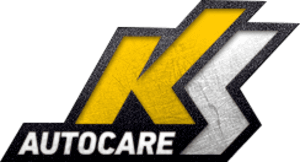There are all sorts of vehicle maintenance types. However, one of the most important is making sure your vehicle has enough fluids. What kinds of fluids, you ask? Engine oil, transmission fluid, and brake fluid (to name a few). If your vehicle’s fluid levels are low, bring it into KS Autocare for some routine car maintenance in Elgin.
Keep reading for an in-depth guide to all the fluids your vehicle needs and why they are so important for maintaining your vehicle’s overall health and performance.
Types of Fluids Your Vehicle Needs

There are eight different types of fluids your vehicle needs in order to function properly. These include:
- Engine Oil
- Transmission Fluid
- Brake Fluid
- Engine Coolant
- Power Steering Fluid
- Window Washing Fluid
- Differential Fluid
- Hydraulic Clutch Fluid
Here’s a brief overview of each, and how they function inside your vehicle:
Engine Oil
Engine oil is perhaps one of the most important fluids your vehicle needs in order to function properly.
This helps keep your engine and all related parts, including pistons and gears, lubricated and cooled so nothing overheats while you’re in the middle of driving.
Though the type of oil you need to use will vary based on the make and model of your vehicle, both 5W-30 and 5W-20 are generally accepted as being the most common engine oils on the market.
Transmission Fluid
Just like engine oil, transmission fluid is equally important for your vehicle’s health because it also lubricates and cools your transmission and the other parts related to it, such as valves and pumps.
If your transmission fluid is too low, it could actually stall your vehicle or make it difficult to switch into other gears. This could be a serious problem if you’re in the middle of the road.
Brake Fluid
Brake fluid helps apply the necessary pressure to your braking system. Without it, your brakes don’t function as well as they should. And, considering how important your brakes are to your safety, you’ll always want to make sure your fluid levels are good.
Engine Coolant
If engine oil already cools down the engine, what does engine coolant do? This is a commonly asked question and though it does cool down the engine, it also pumps your vehicle’s climate control system with heating fluid.
This is what allows your air conditioning and heater to work.
Power Steering Fluid
Power steering fluid is what allows your steering wheel to turn as effortlessly as it does. This lubricates and helps cool the steering gear box, among other related components.
Window Washing Fluid
Window washing fluids help to keep both your headlights and windshield clean and streak-free so you have greater visibility, especially at night and in poor weather conditions.
Differential Fluid
Differentials are what help your vehicle’s wheels turn at varying speeds. Differential fluid lubricates the components of your rear differentials, including bearings and gears.
Hydraulic Clutch Fluid
The clutch on your vehicle is designed to make your wheels go, and for your transmission and engine to engage. This fluid makes this all possible.
How Often Do You Need to Get the Fluid Levels in Your Car Checked?
Ultimately, this answer depends on the make and model of your vehicle. However, there are some general estimates that are widely accepted among vehicle owners and mechanics.
Generally speaking, you should get your oil changed once every six months. Transmission fluid should be changed or flushed once every 30,000-60,000 miles (depending on the make and model of the vehicle), differential fluid should be changed approximately every 40,000 miles, and brake fluid should be changed every two years or so.
Windshield wiper fluid doesn’t even have a replenishment date. Because it doesn’t go bad like oil, you only have to change it when you run out.
While these are just general estimates, getting your oil changed should always be at the top of your list, as this tends to require the most ongoing maintenance out of all the vehicle fluids mentioned here. If you’re looking for a fast oil change or any other vehicle service, call KS Autocare at 224-279-1989.
How to Schedule an Oil Change at KS Autocare
Do you need an oil change? What about a transmission flush? If you need any of your vehicle’s fluid levels either checked or changed, you can get it all done at KS Autocare.
Scheduling a service appointment is simple. All you have to do is visit our website and click on “Appointments.” From here, all you have to do is fill out information about your vehicle, the date and time of your preferred appointment, your contact info, as well as your preference for either dropping your vehicle off for services or waiting for them to be completed.
Once you complete this form, you’ll be all set to go. Scheduling an appointment at KS Autocare has never been easier.
Experience the Fastest Oil Change in Town by Calling KS Autocare!
KS Autocare offers fast and reliable vehicle maintenance services, including oil changes, brake fluid changes, and replenishing any of the other fluids mentioned on this list. If you’re ready to move forward, please either schedule an appointment online through our confidential website or give us a call at 224-279-1989.
Our Elgin-based auto repair shop is conveniently open Monday-Friday 7:00 am – 6:00 pm, so you can get in and get out before your work even opens. We’re located at 575 Page Ave., Elgin, IL 60120. If you want to learn more about our services before you book your appointment, we welcome you to check out our reviews.
We also proudly offer specials and discounts on a variety of vehicle maintenance services. Click here to see what specials we’re currently running.
KS Autocare is here to help you with any type of vehicle service you need. We look forward to seeing you soon.
